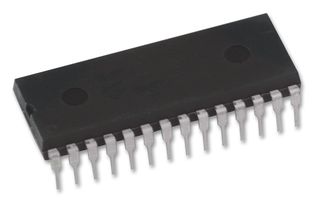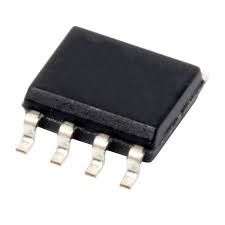TL497ACN
The TL497A incorporates all the active functions required in the construction of switching voltage regulators.
It also can be used as the control element to drive external components for high-power-output applications. The
TL497A was designed for ease of use in step-up, step-down, or voltage-inversion applications requiring high
efficiency
TL7705ACD
TL7757CD
The TL7757 is a supply-voltage supervisor
designed for use in microcomputer and
microprocessor systems. The supervisor
monitors the supply voltage for undervoltage
conditions. During power up, when the supply
voltage, VCC, attains a value approaching 1 V, the
RESET output becomes active (low) to prevent
undefined operation. If the supply voltage drops
below threshold voltage level (VIT?), the RESET
output goes to the active (low) level until the
supply undervoltage fault condition is eliminated.
TLC2274CN
1? Output Swing Includes Both Supply Rails
? Low Noise: 9 nV/?Hz Typical at f = 1 kHz
? Low-Input Bias Current: 1-pA Typical
? Fully-Specified for Both Single-Supply and SplitSupply Operation
? Common-Mode Input Voltage Range Includes
Negative Rail
? High-Gain Bandwidth: 2.2-MHz Typical
? High Slew Rate: 3.6-V/?s Typical
? Low Input Offset Voltage: 950 ?V Maximum at
TA = 25?C
? Macromodel Included
? Performance Upgrades for the TLC272 and
TLC274
? Available in Q-Temp Automotive
TLC251ACP
ion
The TLC251C, TLC251AC, and TLC251BC are
low-cost, low-power programmable operational
amplifiers designed to operate with single or dual
supplies. Unlike traditional metal-gate CMOS
operational amplifiers, these devices utilize Texas
Instruments silicon-gate LinCMOS? process,
giving them stable input offset voltages without
sacrificing the advantages of metal-gate
TLC3704ID
The TLC3704 consists of four independent
micropower voltage comparators designed to
operate from a single supply and be compatible
with modern HCMOS logic systems. They are
functionally similar to the LM339 but use 1/20th
the power for similar response times. The
push-pull CMOS output stage drives capacitive
loads directly without a power-consuming pullup
resistor to achieve the stated response time.
Eliminating the pullup resistor not only reduces
power dissipation, but also saves board space
and component cost. The output stage is also fully
compatible with TTL requirements.
TLC7528CN
The TLC7528C, TLC7528E, and TLC7528I are
dual, 8-bit, digital-to-analog converters (DACs)
designed with separate on-chip data latches and
feature exceptionally close DAC-to-DAC matching. Data are transferred to either of the two DAC
data latches through a common, 8-bit, input port.
Control input DACA/DACB determines which
DAC is to be loaded. The load cycle of these
devices is similar to the write cycle of a
random-access memory, allowing easy interface
to most popular microprocessor buses and output
ports. Segmenting the high-order bits minimizes
glitches during changes in the most significant
bits, where glitch impulse is typically the
strongest
TLE2142C
TLE2142CD
The TLE214x and TLE214xA devices are high-performance, internally compensated operational amplifiers
built using Texas Instruments complementary bipolar Excalibur process. The TLE214xA is a tighter offset
voltage grade of the TLE214x. Both are pin-compatible upgrades to standard industry products.
The design incorporates an input stage that simultaneously achieves low audio-band noise of 10.5 nV/?Hz with
a 10-Hz 1/f corner and symmetrical 40-V/?s slew rate typically with loads up to 800 pF. The resulting low
distortion and high power bandwidth are important in high-fidelity audio applications. A fast settling time of
340 ns to 0.1% of a 10-V step with a 2-k?/100-pF load is useful in fast actuator/positioning drivers. Under similar
test conditions, settling time to 0.01% is 400 ns.
TLE2142CP
TLP281-4
TLP291-4 consists of photo transistor, optically coupled to a
gallium arsenide infrared emitting diode. TLP291-4 is housed in the SO16
package, very small and thin coupler.
Since TLP291-4 are guaranteed wide operating temperature (Ta=-55 to 110
?C), it?s suitable for high-density surface mounting applications such as
programmable controllers and hybrid ICs



















